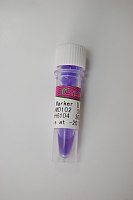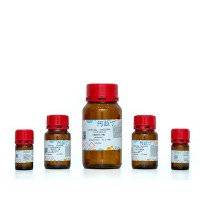Quantitative analysis of pooled DNA samples is today generally recognized as a promising approach to determine allele frequencies of single nucleotide polymorphism (SNP) markers. The use of pooling will increase the genotyping throughput in population genetic studies or association studies, because very large sets of SNPs may be analyzed in a large number of individuals. The concept of DNA sample pooling to reduce labor and cost in an association study was first suggested by Arnheim et al. already in 1985. In that study Southern blot hybridization was used to quantify restriction fragment length polymorphisms (RFLP) in the human leukocyte antigen (HLA) class II locus (1 ). In later studies allele frequencies of microsatellite markers were determined by analyzing pooled DNA samples using polymerase chain reaction (PCR), followed by size separation and quantification of the alleles (2 –4 ). We have found that the solid-phase minisequencing method is an ideal tool to determine the relative amounts of two closely related sequences that






